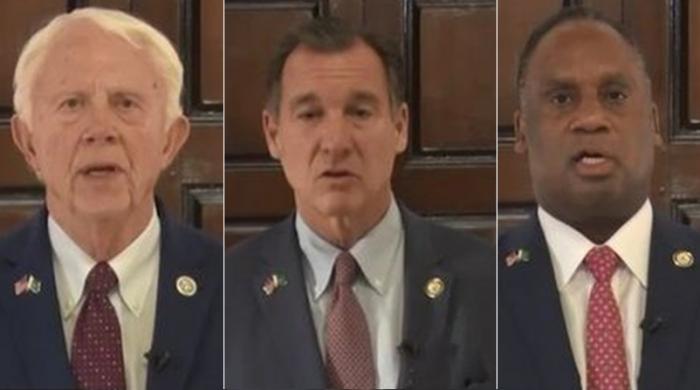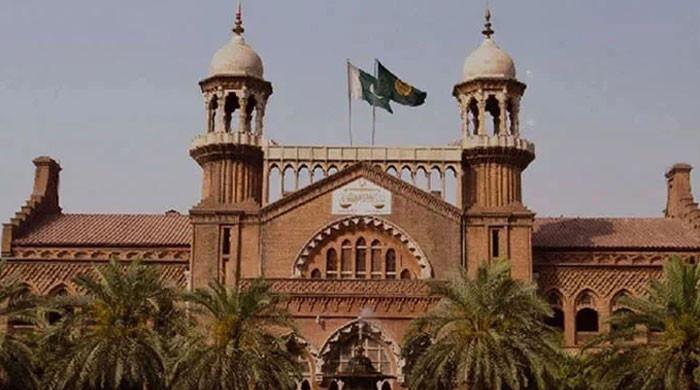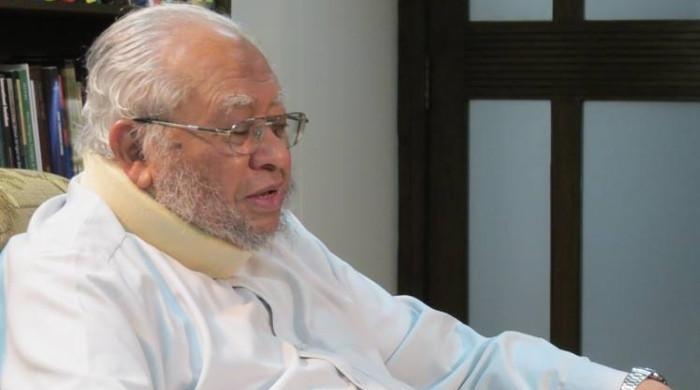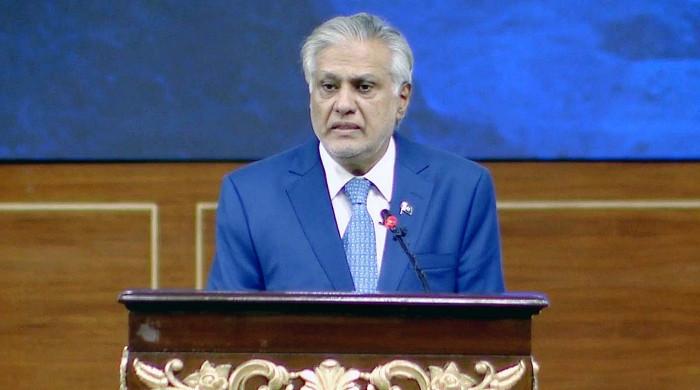Dar's policies sinking Pakistan into debt trap: Asad Umar
PTI leader advises prime minister to declare an economic emergency
September 22, 2017
ISLAMABAD: Pakistan Tehreek-e-Insaaf leader Asad Umar on Friday strongly criticised Finance Minister Ishaq Dar and said the current economic policies are "sinking Pakistan into a debt trap".
He further said the actual situation of the country's economy was much worse than PTI's prediction.
Responding to a report in the media which stated that Pakistan’s total debt and liabilities swelled to an alarming level of Rs25.1 trillion by June this year – with a net increase of Rs2.5 trillion in a year, exposing the country to many risks attached with repayment of mounting obligations.
The PTI leader advised Prime Minister Shahid Khaqan Abbasi to declare an economic emergency and change the "disastrous economic policies" of Dar and former premier Nawaz Sharif to "try and rescue the sinking ship".
Umar said the PTI has warned repeatedly that the failed economic policies of the last four years risk creating a national security threat.
Giving some figures, Asad said the country's external debt and liabilities have increased to $9 billion since last year and now stand at $83bn, which according to the PTI leader amounts to 400pc of Pakistan's exports.
He further said the external debt has risen sharply after the end of the International Monetary Fund's aid package to Pakistan and reserves have continued to fall.
PTI Chairman Imran Khan had earlier said the PML-N government has damaged the economy of the country in a way that even its enemies could not have.
He had also referred to Dar as ‘Pakistan’s economic hitman' and had called for his immediate resignation in light of the National Accountability Bureau (NAB) reference against him.
He had further said that Pakistan was never so heavily in debt as it is today and said the economy of the country has never been this weak.
The PTI chairman had also claimed the debt of the country increased by $18 billion after the PML-N government took power and external debt and liabilities increased to $80 billion in FY2016 -17.
Imran had further said that tax revenue was only increased by the government by increasing taxes on basic good.











